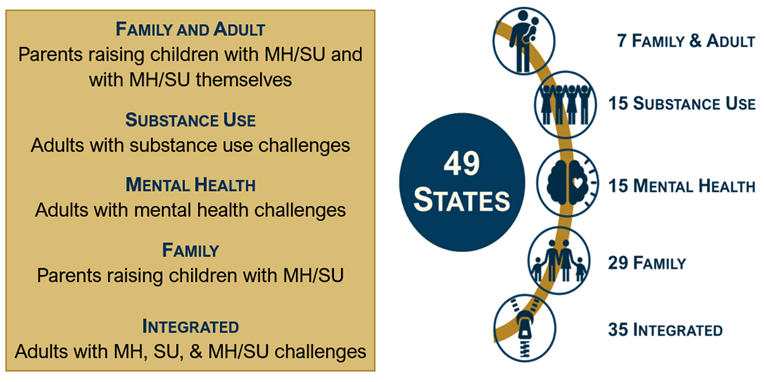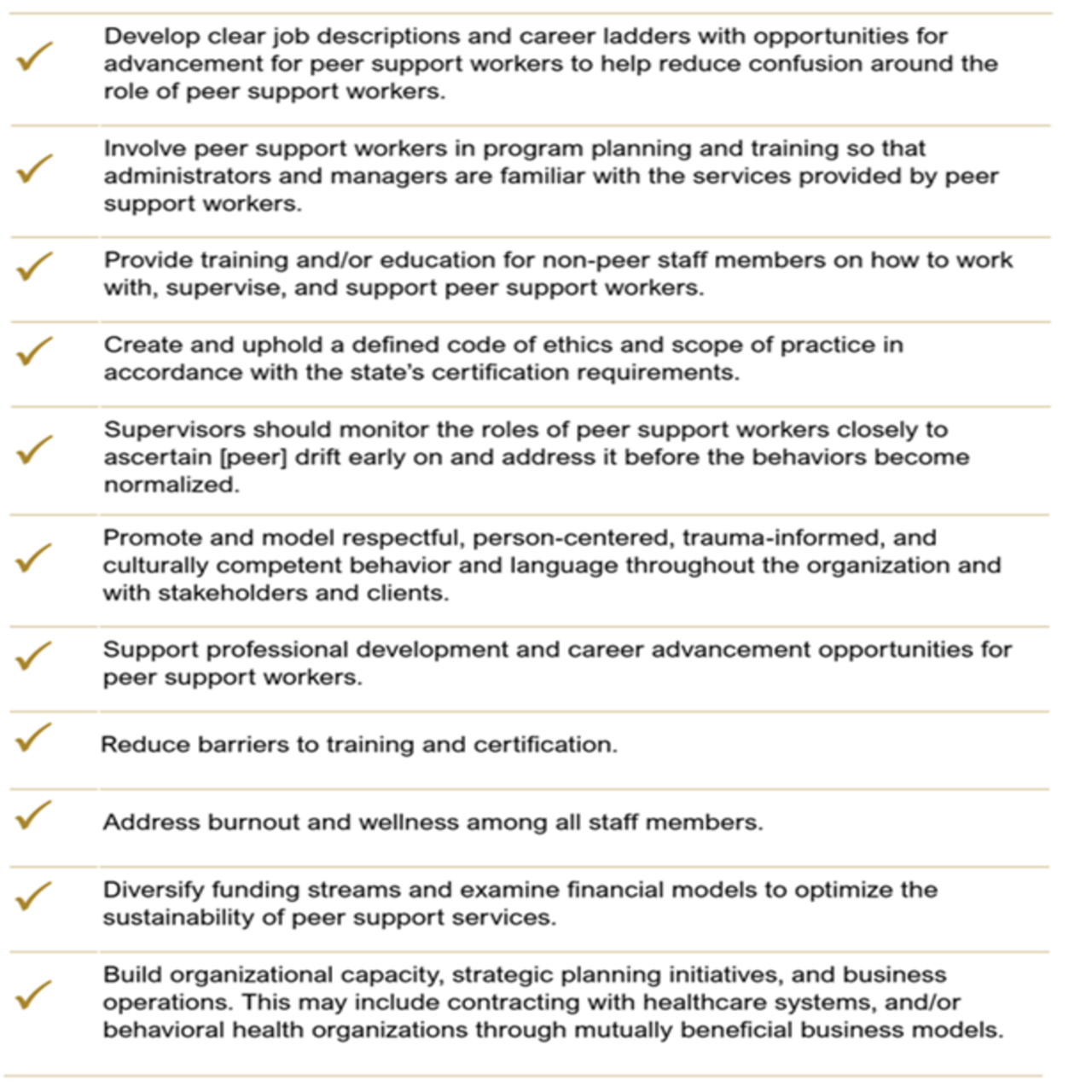August 30, 2023
By Michelle O’Brien and Elizabeth Barnhart
Peer-led advocacy and support services have existed since the early 1700s with documented success, but courts have been slow to adopt the practice, often citing concerns for public safety. Many concerns are deeply rooted in the stigma surrounding substance use and mental health disorders, which is often compounded when peers also have previous involvement in the justice system. Research on the use of peers and peer-led interventions has shown that they improve participant confidence, longevity, and perceptions of procedural fairness in both clinical and court settings. The National Judicial Task Force to Examine Sate Courts’ Response to Mental Illness published a leadership brief on the utilization of peers in the court system in July 2022, noting that “All courts should consider hiring peers into their programs, services, and operations.”
Peer Professionals
According to the SAMHSA Peer Recovery Center of Excellence State Certification Database, 49 out of 50 states have instituted peer certification programs, and 80% have certification programs for 2 or more types of peer specialists. September is National Recovery Month, and when many think of peers and courts, they think of treatment courts and the use of recovery coaches and peer recovery specialists. However, courts are utilizing peers in many new ways from providing advocacy and linkage to wrap-around services in family, criminal, and competency courts to full integration in jails, treatment programs, clinical services, and law enforcement deflection programs.

Tips for Integrating Peers
It is important to recognize that peers will require support and supervision like any other professional when adding navigators, liaisons, recovery specialists, recovery coaches, certified recovery support specialists, or any of the many peer roles available to courts. SAMHSA provides the following suggestions for integrating peers fully into court programs:

For more information on peer support and the courts, visit https://peerrecoverynow.org/ or https://www.ncsc.org/behavioralhealth/resourcehub, or contact the authors.
Does your court utilize peer support and if so, in what cases? Email us at Knowledge@ncsc.org or call 800-616-6164 and let us know. Follow the National Center for State Courts on Facebook, Twitter, Instagram, LinkedIn , and Vimeo.